
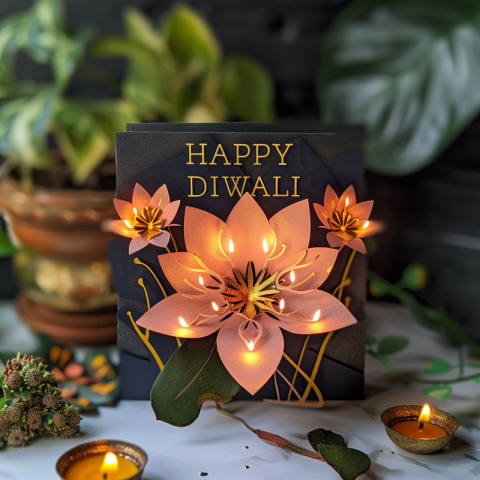
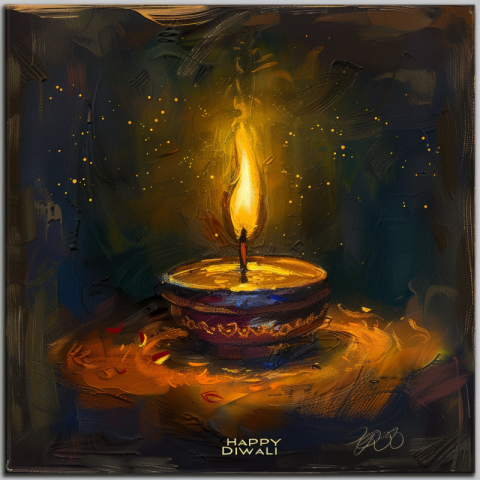
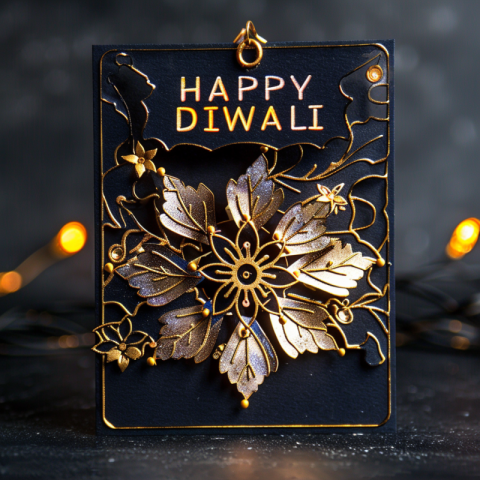
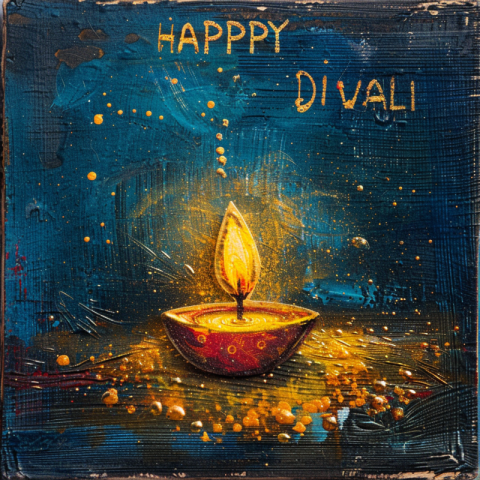
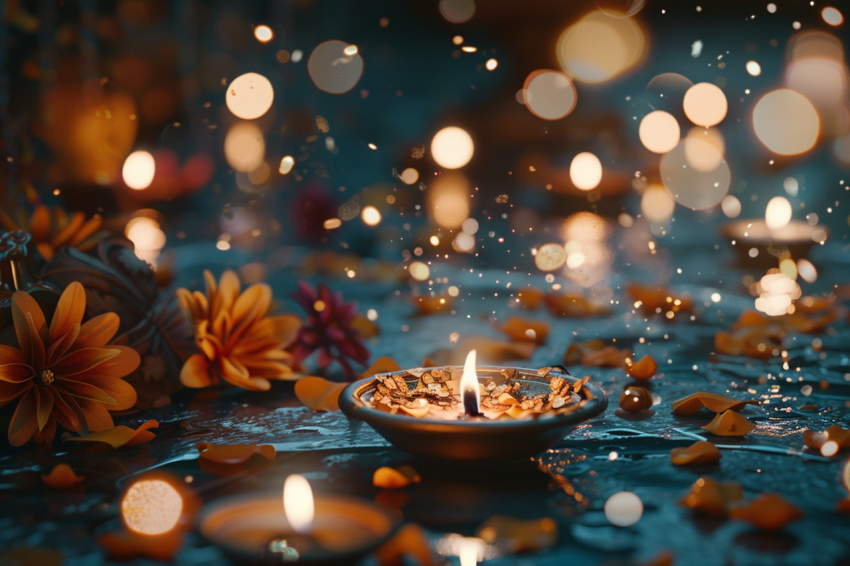
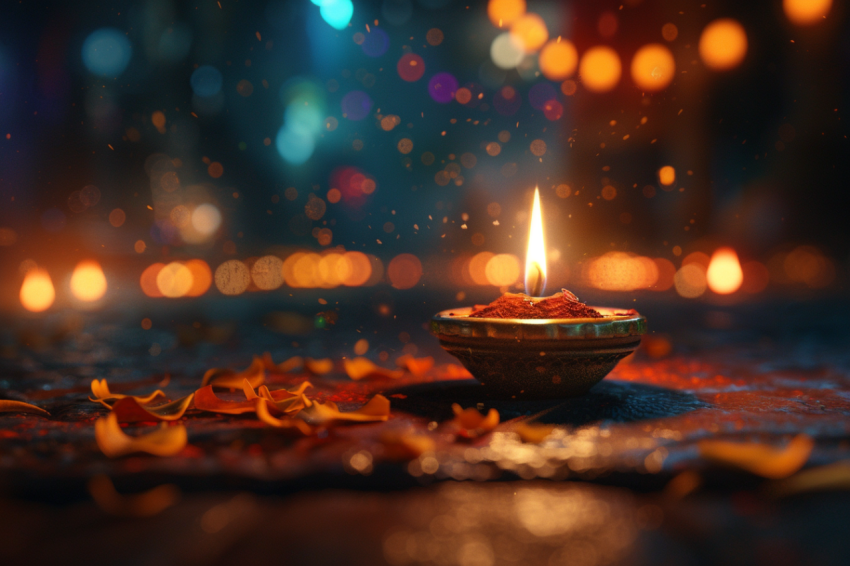
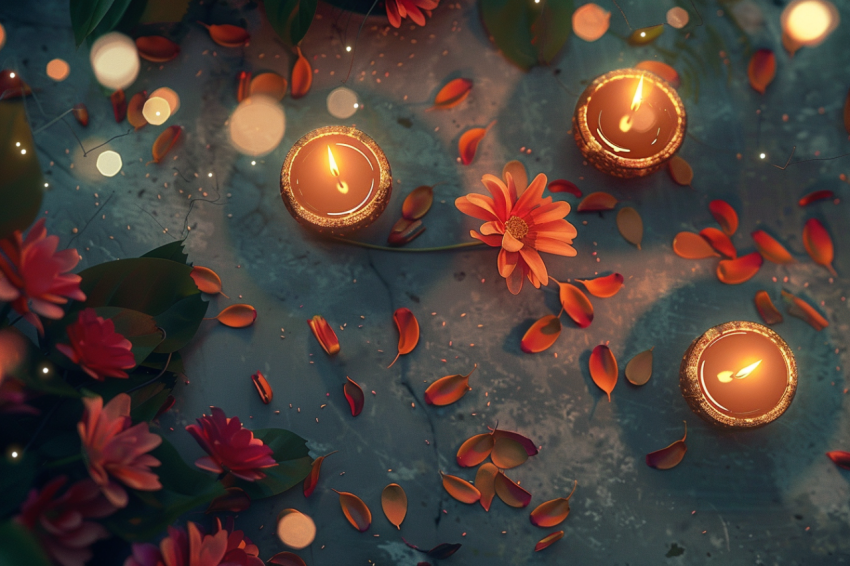
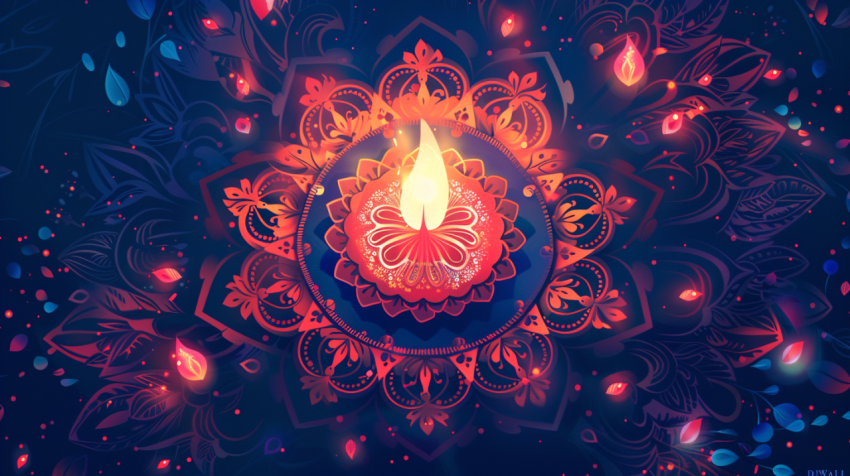
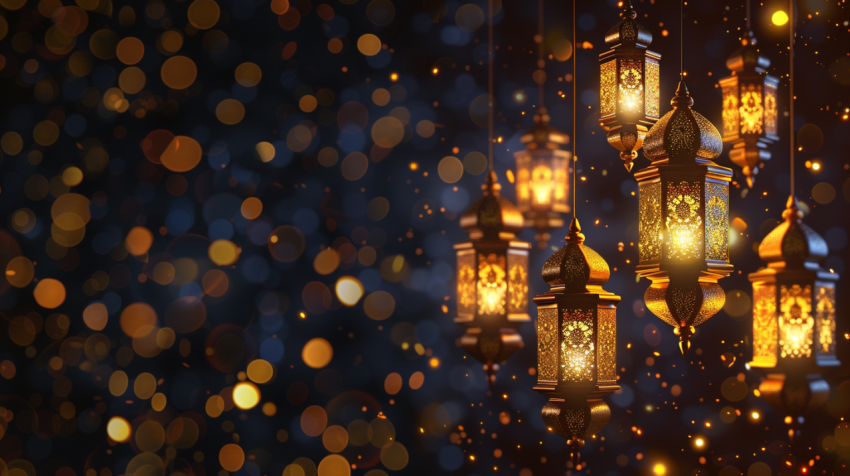
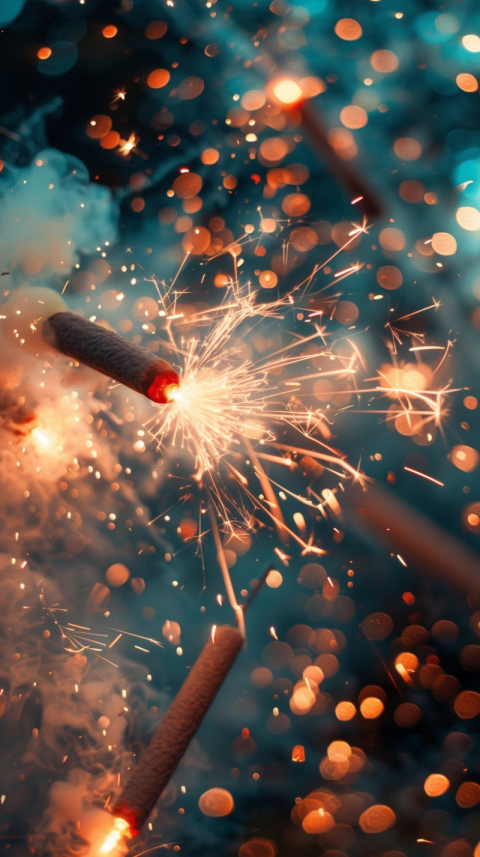
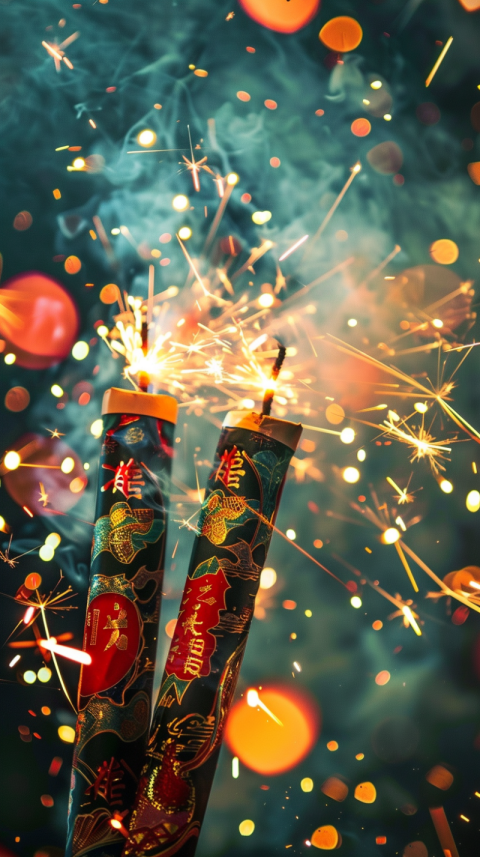
Diwali: The Festival of Lights - A Celebration of Good Over Evil
Diwali, also known as Deepavali, is a major festival celebrated by Hindus, Jains, Sikhs, and some Buddhists around the world. Often referred to as the "Festival of Lights," Diwali symbolizes the triumph of good over evil, light over darkness, and knowledge over ignorance. The festival typically falls in October or November and is observed with great enthusiasm, involving the lighting of diyas (oil lamps), fireworks, feasts, prayers, and the exchange of gifts.
1. The Origins and Significance of Diwali: A Story of Triumph
The origins of Diwali are rooted in ancient Indian mythology and are associated with several different legends:
- The Return of Lord Rama: One of the most popular stories associated with Diwali is the return of Lord Rama, the seventh avatar of Vishnu, to his kingdom of Ayodhya after a 14-year exile and his victory over the demon king Ravana. The people of Ayodhya are said to have lit diyas to welcome their beloved king.
- The Defeat of Narakasura: Another legend tells the story of Lord Krishna, the eighth avatar of Vishnu, defeating the demon Narakasura, who had imprisoned thousands of women. Diwali celebrates this victory of good over evil.
- The Story of Goddess Lakshmi: Diwali is also associated with Lakshmi, the goddess of wealth and prosperity. It is believed that Lakshmi visits homes that are clean and well-lit on Diwali night, bringing good fortune.
- Jainism: Diwali marks the anniversary of Nirvana or liberation of Mahavira's soul, the 24th and last Jain Tirthankara of the present cosmic age.
- Sikhism: Diwali for Sikhs marks the Bandi Chhor Divas, when Guru Hargobind Ji freed himself and 52 other princes from the Gwalior Fort.
2. The Five Days of Diwali: A Celebration in Stages
Diwali is typically a five-day festival, with each day having its own significance and rituals:
- Day 1: Dhanteras: The first day marks the beginning of the Diwali festivities. It is considered auspicious to purchase new utensils, gold, or other valuables on this day. People also worship Lakshmi and Ganesha.
- Day 2: Naraka Chaturdasi (Choti Diwali): This day, also known as "small Diwali," commemorates Krishna's victory over Narakasura. People wake up before dawn, take a ritual bath, and light diyas.
- Day 3: Lakshmi Puja (Main Diwali Day): This is the main day of Diwali, dedicated to the worship of Goddess Lakshmi. Families clean their homes, decorate them with diyas and rangoli (colorful patterns made on the floor), and perform Lakshmi Puja in the evening. Fireworks are also set off on this day.
- Day 4: Govardhan Puja: This day is dedicated to Lord Krishna and commemorates his lifting of Mount Govardhan to protect the villagers from torrential rain.
- Day 5: Bhai Dooj: The final day of Diwali celebrates the bond between brothers and sisters. Sisters pray for the well-being of their brothers, and brothers give gifts to their sisters.
3. Diwali Traditions and Rituals: Illuminating the Darkness
Diwali is celebrated with a variety of traditions and rituals:
- Lighting Diyas and Candles: The most iconic tradition of Diwali is the lighting of diyas (oil lamps) and candles, symbolizing the victory of light over darkness. Homes, businesses, and public spaces are illuminated with these lights.
- Creating Rangoli: Rangoli are colorful patterns made on the floor using colored powders, flowers, or other materials. They are believed to welcome guests and bring good luck.
- Bursting Fireworks: Fireworks are an integral part of Diwali celebrations, symbolizing joy and celebration. However, in recent times there has been a movement towards more eco-friendly forms of celebration due to concerns about noise and air pollution.
- Exchanging Gifts and Sweets: Family and friends exchange gifts, sweets, and dry fruits as a gesture of goodwill and affection.
- Wearing New Clothes: People traditionally wear new clothes on Diwali.
- Feasting: Diwali is a time for feasting with family and friends. Special Diwali sweets and delicacies are prepared and shared.
- Gambling: Although frowned upon by some, playing cards and gambling are a part of Diwali celebrations for some people.
4. Diwali Celebrations Around the World: A Global Festival
Diwali is celebrated not only in India but also by the Indian diaspora around the world:
- Countries with significant Indian populations, such as Nepal, Sri Lanka, Singapore, Malaysia, Mauritius, Fiji, Guyana, Trinidad and Tobago, and Suriname, celebrate Diwali with great enthusiasm.
- In recent years, Diwali celebrations have also gained popularity in Western countries, with major cities like London, New York, and Toronto hosting Diwali events and festivals.
- Many world leaders also send Diwali greetings to those who celebrate it.
5. The Significance of Diwali in Modern Times: Beyond the Rituals
Beyond the traditional rituals and celebrations, Diwali holds a deeper significance in modern times:
- It's a time for reflection, renewal, and new beginnings.
- It's an opportunity to strengthen family bonds and social connections.
- It's a reminder of the importance of good over evil, knowledge over ignorance, and hope over despair.
- Diwali promotes values of compassion, generosity, and sharing.
6. Environmental Concerns and Eco-Friendly Diwali
In recent years, there has been growing awareness of the environmental impact of Diwali celebrations, particularly the use of fireworks:
- The noise and air pollution caused by fireworks can have negative effects on human health and the environment.
- Many people are now opting for eco-friendly Diwali celebrations, using fewer fireworks or choosing alternatives like laser shows or soundless crackers.
- There's a growing movement to promote the use of diyas and other traditional forms of illumination instead of electric lights to reduce energy consumption.
Conclusion:
Diwali, the Festival of Lights, is a vibrant and joyous celebration that holds deep cultural and spiritual significance for millions of people around the world. It's a time for family, feasting, and festivities, but also a time for reflection and renewal. As Diwali continues to be celebrated in the 21st century, it's important to remember its core message of the triumph of good over evil and to strive for a more sustainable and eco-friendly way of celebrating this beautiful festival. The enduring traditions and the universal message of hope and light make Diwali a truly special and meaningful occasion.
Diwali, Deepavali, Festival of Lights, Diwali 2023 (or relevant year), Diwali celebrations, Diwali history, Diwali significance, Diwali traditions, Diwali rituals, Lakshmi Puja, Dhanteras, Naraka Chaturdasi, Govardhan Puja, Bhai Dooj, Diwali sweets, Diwali gifts, Diwali decorations, Diwali rangoli, Diwali diyas, Diwali fireworks, Diwali in India, Diwali around the world, eco-friendly Diwali, why is Diwali celebrated, story of Diwali, Diwali food, Diwali greetings, Happy Diwali.

